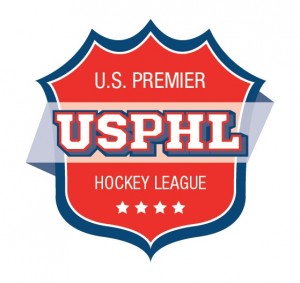Spectators yelling from the sidelines during youth hockey games creates nothing but tension
 I’d like to bring up a rather interesting behavior that happens in hockey rinks across North America.
I’d like to bring up a rather interesting behavior that happens in hockey rinks across North America.
The typical hockey rink has approximately 300 feet of seating or standing room directly on the glass, which puts the spectator mere inches away from the players. Parents and supporters congregate at one end of the ice or the other and tend to migrate depending on the play. It happens in every rink at incredibly early or late hours of both day and night.
I often find myself standing back from the glass because I learned early on that it can be a hotbed of explosive interactions between opposing team spectators. One only needs to type into Google “hockey parents behaving badly” to see the most inappropriate interactions between adults. In many rinks across the country, police officers are stationed at youth hockey games due to aggression and fighting that commonly occurs between parents.
I felt it necessary to bring up this issue because the people who are watching the games seem to be unaware of that impact of how and what they’re saying. During a recent tournament, I witnessed a parent issue a string of profanities at the glass toward a Squirt player who she felt tripped her son during the play. Something that seemed to miss her attention was that the parents of this child were literally standing right next to her. This created an awkward silence and some bitter feelings.
It is important to keep in mind that I am not saying all hockey parents scream and yell, bang on the glass or get into verbal and physical altercations with other parents. Actually, most parents are incredibly supportive and will cheer for the team that they want to win. I recall specifically at the end of a very contested and physical game between two teams that played every shift like it was their last in Quebec, spectators erupted in unity into a loud and sustained applause for all the players as they went through the handshake line. It was clear that they were not only celebrating their team or even the team that won, but both sets of players for an incredible game of hockey. People left the rink feeling proud and positive rather than defeated and divided.
What I am discussing is, if each of us takes a moment to honestly look at what goes on for us during a game, I would argue that the screaming, yelling parent exists in all of us. That aspect of the spectator who wants to scream at the top of their lungs as if the rink was on fire or our child was in direct danger of being eaten by a tiger. Then why do some parents yell and bang on the glass, often alienating themselves from the rest of the group, and others cheer and support their team in a more adaptive manner?
During our last hockey tournament in Los Angeles, I began to wonder why people, who normally would probably get along with one another because of their common interest in supporting their children in such a time- and labor-extensive and expensive sport, actively said things to one another that were often unkind and sometimes downright mean about other children. I also wondered why parents who could see that there were at least six adults who were directly in charge of what was occurring on the ice and who are hockey professionals, were often disregarded as people who are able to protect the players on the ice.
It could be argued that the action of screaming and banging on the glass only serves to distract the player and teach the player an important lesson – when you dislike something or feel it unfair, it is expected that you should lose control and scream. Imagine if we were called to our son’s or daughter’s school and told by the principal that they punched a hole in the wall and screamed at the teacher when an assignment was not recorded correctly.
Please keep in mind that I’m not saying that the refs or coaches don’t miss things. What I am saying is that in the moments of the game that are the most intense and the adults on the ice need to be most focused, often times their attention is drawn away by parents behaving badly either with one another or towards the ref.
Which brings me to my next question: Do parents and spectators of youth hockey truly believe that by screaming at the ref and telling them that they are incompetent or have missed some egregious action, something will change? From what I understand, about the only thing that will change is that the screaming parent cannot be anywhere near the team or in the rink for the next 30 days after being ejected and will be fined for verbally abusing an official.
What I would like to suggest is that as hockey parents, all of us take a moment to think about the reality of screaming at a piece of glass. It might seem like we’re able to impact what’s occurring on the ice, but really all we’re doing is amplifying our voice to all of those next to and behind us.
A thought that might help in those moments is to keep in mind that this is a game. It is a game that all of us as parents have dedicated so much in the service of – providing our child with an opportunity to do something that they love.
Hockey is a passionate sport.
That passion can sometimes carry over into an expression of rage and inappropriate behaviors. Our children can see through the glass and your behavior does not go unnoticed. In other words, just as you can see what’s happening on the ice, your child can see what you are doing on the other side of that glass.
During the next tournament or league game, I would like to encourage you to try something. When the game becomes intense and you’re watching one team overtake another, begin to think about that first day that you brought your son or daughter to their first hockey lesson. Think about the joy that you experienced watching them out on the ice and how excited you were when they were chosen onto a team and began their new identity as a travel or in-house hockey player.
Now, look around you.
Almost every other person sitting there next to the glass has a similar set of memories. We might not all have the same backgrounds, policy views, parenting style or family values, but we do share a common experience and are in this massive community together. We all want our children to learn how to be good teammates, good friends, and great hockey players. I would suggest that the best way to do that would be to model to them that you are supportive of them however they play as long as they try their hardest and support their team and teammates.
Whether or not you yell or scream is not going to change anything about how they’re playing in that moment. Leave the teaching to the coaches. Leave the reffing to the refs. Enjoy the experience of being at the rink around all of these people who share your same ideals – the ideals of helping a child develop a lifelong love of the most beautiful sport.
Trevor Small, Psy.D., is a clinical psychologist who is the Safe Sport coordinator for the Los Angeles Jr. Kings, the clinical director of Bridges to Recovery, and is in private practice in Santa Monica. He has provided mental health services to adolescents and adults for almost 30 years.
(Jan. 15, 2018)










